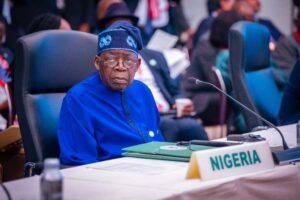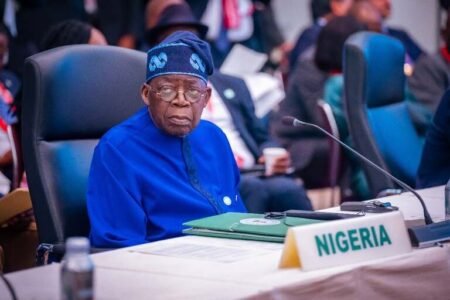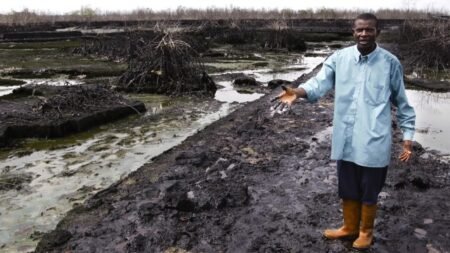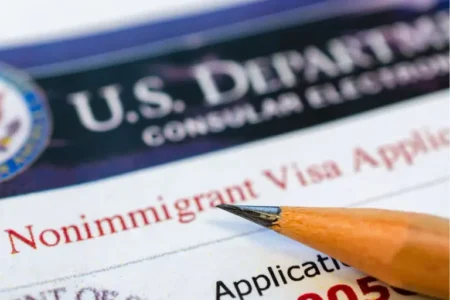Governor Siminalayi Fubara of Rivers State, has revealed why he refused to contest President Bola Tinubu’s declaration of an emergency in the state, citing a desire to ensure peace, stability, and growth for the people.
Fubara made this statement during a statewide broadcast on Friday, upon his return to the state after the emergency rule expired.
The governor and his deputy, Prof. Ngozi Odu, and the Chief of Staff of the Rivers State Government House, Edison Ehie, arrived at Port Harcourt International Airport, Omagwa, two days after President Bola Tinubu lifted the state of emergency imposed on the state and reinstated him.
Their airplane, 5N-BTX, touched down at 12:15 p.m. and was greeted with a heroic welcome.
At the airport to receive Fubara were several of his supporters, including a former Commissioner for Information and Communications, Emma Okah; former Commissioner for Health, Dr. Adaeze Oreh; former Nigerian Ambassador to the Netherlands, Orji Ngofa; former Commissioner for Environment, Sydney Gbara; and former factional Speaker of the State House of Assembly, Victor Oko-Jumbo.
Others present were former Commissioner for Youths, Chisom Gbali; former Commissioner for Physical Planning and Urban Development, Evans Bipi; former President of NUPENG, Igwe Achese; former Commissioner for Education, Dr. Tamunosisi Gogo-Jaja; and former council chairmen of Port Harcourt City, Ezebunwo Ichemati, among others.
Tinubu, on Wednesday, announced an end to the emergency rule, which ended the six-month tenure of ex-naval chief Vice-Admiral Ibok-Ete Ibas (retd.) as Rivers State sole administrator.
Rivers State has experienced one of Nigeria’s most intense political crises, putting Fubara against his predecessor and FCT minister, Nyesom Wike.
Once partners, their disagreements over control of state structures and resources divided the House of Assembly, spawning impeachment attempts, protests, and violence, including the burning of the Assembly complex.
Prior to the imposition of emergency rule, President Tinubu intervened with a peace proposal that failed to calm strained nerves.
In a statement released by the Presidency on Wednesday regarding the end of the emergency rule, the President stated, “The Governor, His Excellency Siminalayi Fubara; the Deputy Governor, Her Excellency Ngozi Odu; and members of the Rivers State House of Assembly and the speaker, Martins Amaewhule, will resume work in their offices from September 18, 2025.
“It, therefore, gives me great pleasure to declare that the emergency in Rivers State of Nigeria shall end with effect from midnight today (Wednesday).”
Addressing the state, Fubara termed the emergency rule period as “enormously challenging” but stated that he was willing to follow the proclamation to allow for the restoration of peace.
“As your governor, I accepted to abide by the state of emergency declaration and chose to cooperate with the president and the National Assembly, guided by my conviction that the sacrifice was not too great to secure peace, stability, and progress for Rivers State.
“This was why I also resisted the pressure to challenge the constitutionality of the declaration of the state of emergency, the suspension of democratic institutions, and all other actions that we endured during the difficult period,” he said.
The governor praised Tinubu for mediating a peace settlement among all parties engaged in the conflict, stating that the intervention helped reunite him, Federal Capital Territory Minister Nyesom Wike, and Rivers State House of Assembly members.
“Our leader, Nyesom Wike, all members of the Rivers State House of Assembly, and I, as your governor, have all accepted to bury the hatchet and embrace peace and reconciliation in the best interest of our dear state,” Fubara said.
The governor expressed gratitude to Tinubu and reaffirmed his commitment to the president, promising never to take his intervention for granted. He also appealed to residents who are skeptical of the peace process.
“To those who have expressed genuine fear, frustration, and uncertainty over the nature of the peace process, I assure you that your concerns are valid and understood.
“However, nothing has been irretrievably lost. There remain ample opportunities for necessary adjustments, continued reconciliation, and inclusiveness,” Fubara assured.
Fubara, on the other hand, tasked political leaders, stakeholders, and state institutions with ensuring that the obtained peace be maintained.
Fubara stated that with peace restored, his administration’s priority would shift entirely to governance and service delivery.









